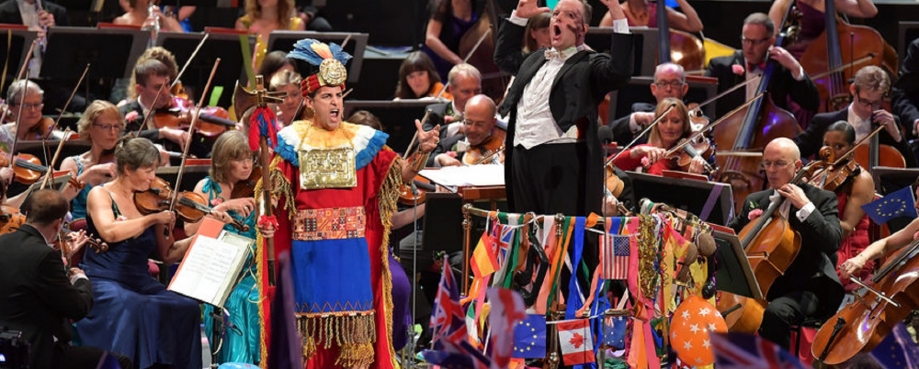
Stirling Smith, ETI trainer and blogger, is proud to be British; he just wants more companies to be so as well.
The Last Night of the Proms has been and gone. It's an annual showcase of Britishness. Personally, l liked it. You had a Finnish conductor and lots of music by foreigners, and the audience brought along all sorts of flags.
But what most people think of is the second half, when the audience joins in singing Rule Britannia and Land of Hope and Glory.
Well, if you are one of those folk, and are looking for reasons to be proud to be British, especially in these BREXIT days, your blogger can help.
Swell with pride
There is a date, which can make your patriotic heart swell with pride. But you won't have heard if it:
30th June 1950
Not a battle.
Not a discovery.
It's when the United Kingdom ratified ILO Convention No.98 on the Right to Organise and Collective Bargaining (1949).
And we were the FIRST country to ratify the convention.
Struggling? Feel like an American trying to understand cricket? Let me quote from the convention:
"Workers and employers, without distinction whatsoever, shall have the right to establish and, subject only to the rules of the organisation concerned, to join organisations of their own choosing without previous authorisation."
Sounds familiar? It should.
"Workers, without distinction, have the right to join or form trade unions of their own choosing and to bargain collectively."
That is from the ETI Base Code clause 2, the bit some people find embarrassing.
Ah, now you remember your ETI training where you learnt that the ETI Base Code is founded on ILO conventions – internationally recognised human rights.
A Great British invention
It was quite appropriate that the UK was first out of the blocks to ratify Convention 87, as trade unions were invented in these islands, along with lawn tennis, Factories Acts, the jet engine, co-operatives, the hovercraft, laws against child labour, computers and factory inspectors.
My previous blog on the history of ethical trade will jog your memory.
All part of our contribution to the world, all things we can be proud of.
Except we don't seem to be. A report from the House of Commons library came out during the Summer, which tells a different story.
Several blue-chip construction companies broke the law (on data protection) and conspired to set up a list of building workers who tried to organise on sites. Especially about safety and health - the industry has a very poor safety record.
More than 40 companies came together and had records of more than 3,000 individuals, who became unemployable – by virtue of wanting to keep building workers safe.
This practice is called blacklisting, which the House of Commons defines as:
"The practice of compiling information on individuals concerning their trade union membership and activities, with a view to that information being used by employers or employment agencies to discriminate in relation to recruitment or treatment. It has a long history, dating back at least to 1919 and the formation of the Economic League."
Guess how many of those companies were prosecuted?
Yes - none.
In fact, some of the companies have since been awarded government contracts.
A global problem
At this point, from my early training as a vicar, I could quote the Bible, “a prophet is not without honour except in his own country” (St Mark’s Gospel, chapter 6, if you want to go to the source).
We invented trade unions, and yet allow this crude anti-trade union crime to go unpunished.
But it should not be true. Because many other countries have a much worse record in fulfilling their obligations under ILO convention 87.
Also, this summer, the International Trade Union Confederation, which links together 176 million workers in more than 300 counterparts of the TUC, published its latest annual report on workers’ rights.
I’ve blogged about this before in The List of Shame.
In fact, I blog about this every year, when the report comes out.
[Editor: Sharan Burrow, General Secretary of the ITUC also blogged about it for us this year.]
Some of this year’s highlights, if that is the right word, are that workers were killed for their trade union in 11 countries. And in nearly 60 countries workers were exposed to violence for organising.
Here's the thing.
All these crimes are unnecessary because trade unions would help employers. See previous blogs and especially this one, Why Trade Unions are a Good Thing.
To quote the Bible again, Jesus wept!
Download our guide on Freedom of Association in Company Supply Chains which provides practical help to companies in identifying and understanding the impacts of their operations on the fundamental rights of freedom of association and collective bargaining.
